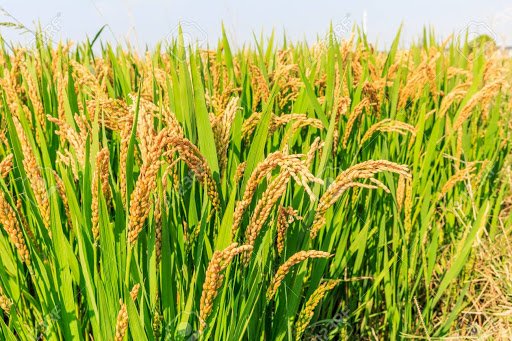Political decision
For Printing Download Epaper from files section from bottom of this page

The center’s decision to increase the minimum support prices of the entire Kharif season crop is totally political aimed at pacifying agitating farmers against three farm laws. MSP s has been always a point of politics in India since Congress's rule. This does not mean that this decision is wrong or uncalled for. It is a very good decision but in the wrong direction. The Narendra Modi government has raised the minimum support price (MSP) of the 2021-22 paddy crop by Rs seventy-two per quintal, to Rs one thousand and nine hundred forty for common and Rs one thousand and nine hundred sixty for ‘Grade A’ varieties. This increase, of slightly over 4.8 percent, might seem modest. It is also true that cultivation costs — particularly on account of diesel used for powering tractors, irrigation pumps and harvester combines — have gone up. But that does not justify an MSP increase now, when rice and wheat stocks in public godowns have, for the first time, crossed the hundred million tonnes (mt) mark. Government agencies have procured over 97 mt of these two cereals from the 2020-21 crop so far, breaking even the previous year’s record of 91 mt. When granaries are already overflowing — distribution of free grain under the Pradhan Mantri Garib Kalyan Anna Yojana, over and above existing National Food Security Act entitlements, has made little difference — encouraging more paddy and wheat production makes no economic sense. Farmers should actually be discouraged to grow them, along with sugarcane, as they are water-guzzling to boot. Politics plays a role here as no government or political party is ready to displease farmers. In Maharashtra, there was a proposal to ban on cultivating sugarcane as it is a very water-consuming crop. But, the farmers' lobby of West Maharashtra is so strong that, no government has shown the courage to implement this ban. The effect of this overflowing sugarcane cultivation is that other parts of Maharashtra do not get enough water for their farming. But, as West Maharashtra is politically strong as all the powerful leaders of Congress and NCP come from that part, the government has not been able to control the crop cultivation. But it isn’t economics and agro-ecology alone. The government should be promoting crop and animal agriculture that also leads to the consumption of foods rich in proteins, vitamins, minerals, and dietary fiber — as against just calories and sugar — by the people. The right way to do it is by freezing the MSPs of paddy and wheat, besides capping their procurement at, say, 10-15 quintal per acre per farmer. In Punjab, the farmers produce wheat in extraordinary quantities and send it to other states. Still, the government to appease those farmers, increase MSP for wheat and rice. This will result in more production and Punjab farmers will become richer. There is no objection if Punjab farmers go towards wealth, but our farmers in other parts of the country would become more and more poor due to this policy. This must be combined with higher MSPs for pulses, oilseeds and millets. The MSPs of tur and urad are up by Rs 300 per quintal for the coming season, while even more (Rs 452/quintal) in the case of sesamum. But the absence of assured procurement means farmers have no incentive to cultivate them. Instead, they are likely to further expand the area under paddy and wheat, perpetuating the most economically, environmentally and nutritionally perverse cropping pattern. In Maharashtra, there is already overflowing of Tur pulse and the farmers have to go empty-handed with their crop unsold. In such a situation, if MSP for Tur is raised, naturally farmers cultivate more Tur and Urad pulses and everybody will become poor as the crop will go unsold. The reasons for the Modi government taking the beaten track are obvious. Since the launch of the farmer agitation, it has been under pressure to demonstrate that its reform laws aren’t aimed at ending MSP-based procurement. It’s not for nothing that government agencies have bought all-time high quantities of paddy and wheat this time from Punjab, where the protests have also been the loudest. With the state headed for polls early next year, and the ruling party forced on to the defensive following the mishandling of the ’s second wave and the electoral defeat in West Bengal, a renewal of the movement is seen as politically inopportune. Once again, it is politics that has taken the driver’s seat.

 Active Times
Active Times 

















